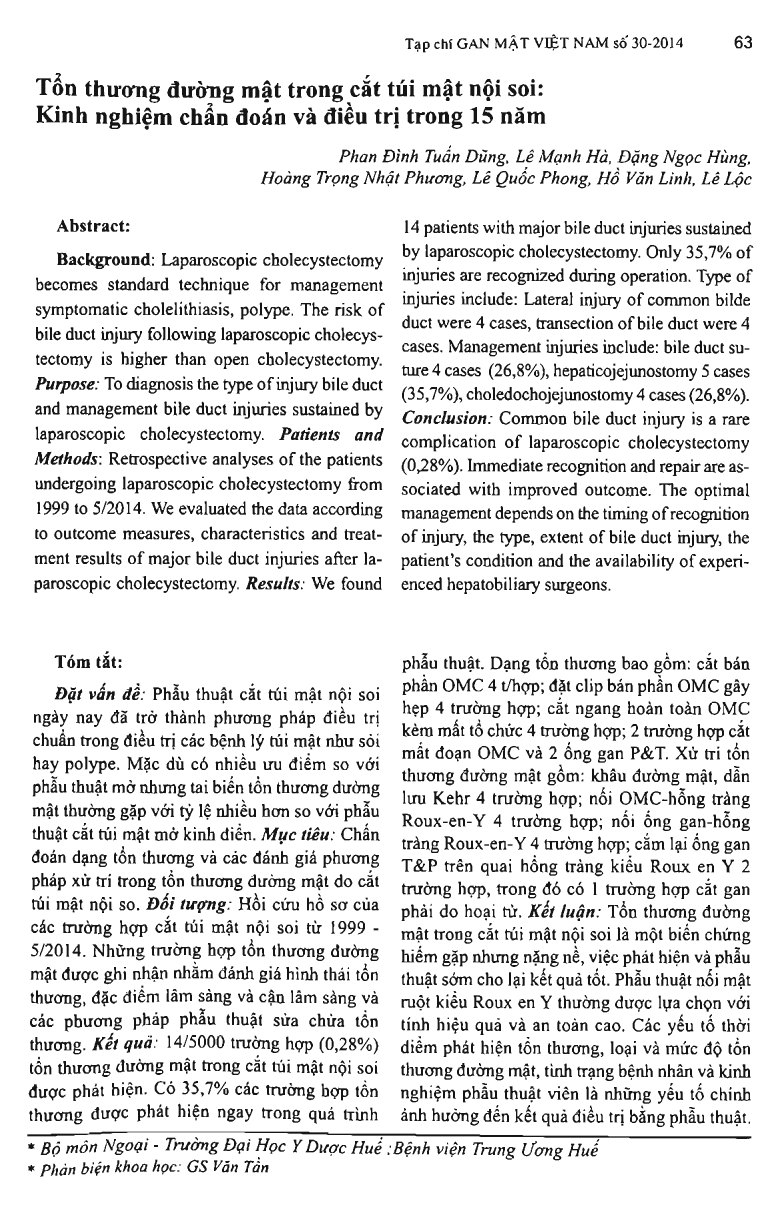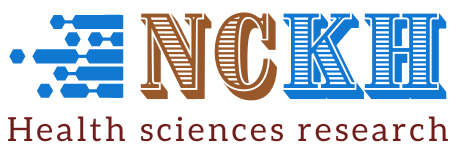
Background: Laparoscopic cholecystectomy becomes standard technique for management symptomatic cholelithiasis, polype. The risk of bile duct injury following laparoscopic cholecystectomy is higher than open cholecystectomy. Purpose: To diagnosis the type of injury bile duct and management bile duct injuries sustained by laparoscopic cholecystectomy. Patients and Methods: Retrospective analyses of the patients undergoing laparoscopic cholecystectomy from 1999 to 5/2014. the authors evaluated the data according to outcome measures, characteristics and treatment results of major bile duct injuries after laparoscopic cholecystectomy. Results: the authors found 14 patients with major bile duct injuries sustained by laparoscopic cholecystectomy. Only 35,7 percent of injuries are recognized during operation. Type of injuries include: Lateral injury of common bilde duct were 4 cases, transection of bile duct were 4 cases. Management injuries include: bile duct suture 4 cases (26,8 percent), hepaticojejunostomy 5 cases (35,7 percent), choledochojejunostomy 4 cases (26,8 percent). Conclusion: Common bile duct injury is a rare complication of laparoscopic cholecystectomy (0,28 percent). Immediate recognition and repair are associated with improved outcome. The optimal management depends on the timing of recognition of injury, the type, extent of bile duct injury, the patient's condition and the availability of experienced hepatobiliary surgeons.
- Đăng nhập để gửi ý kiến
